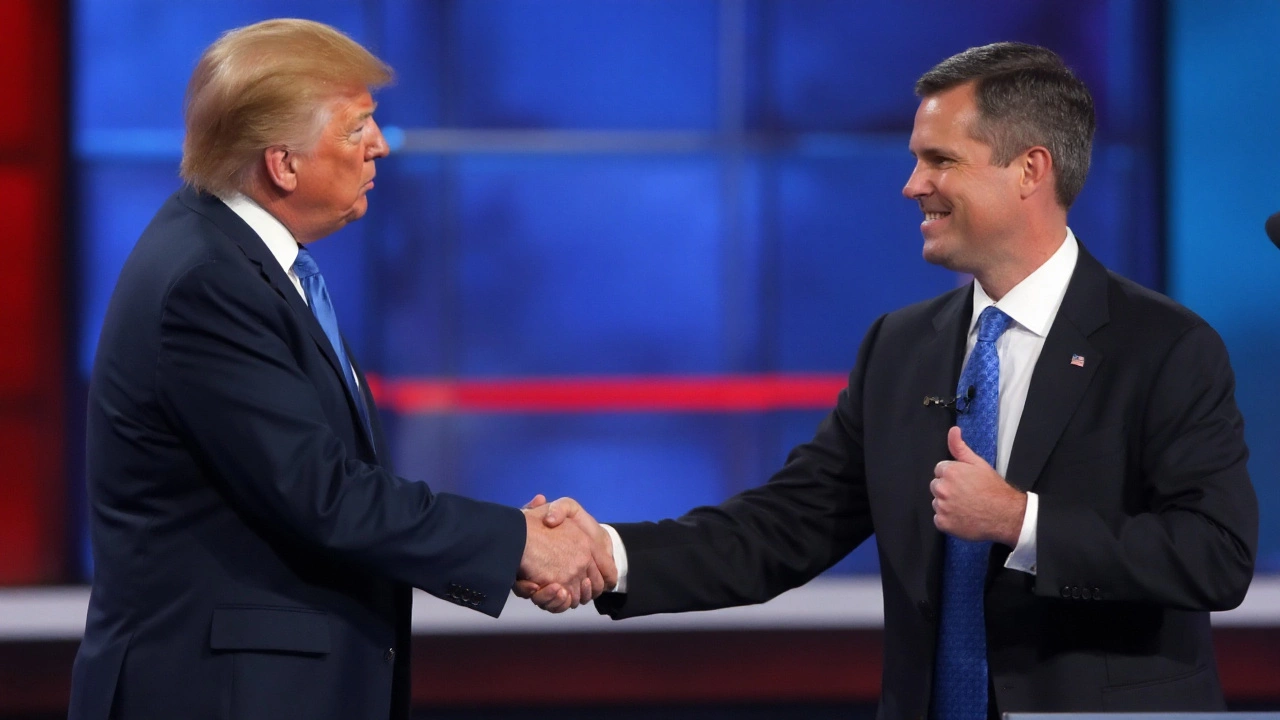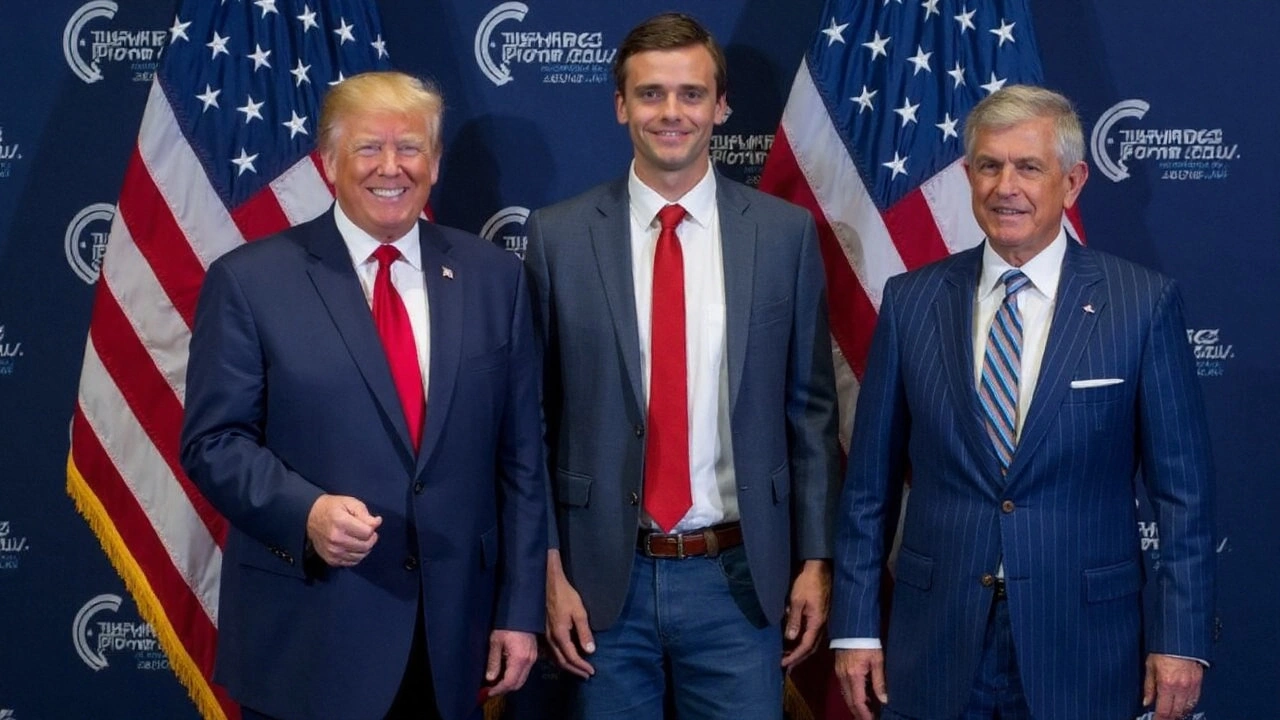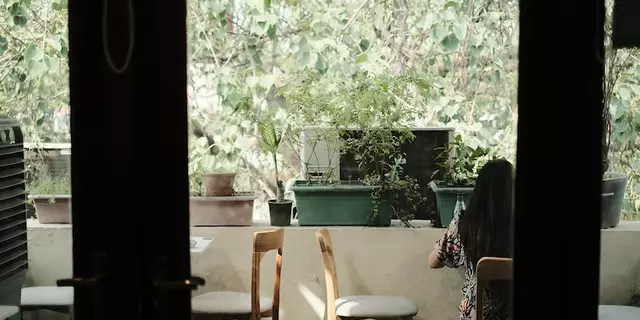Charlie Kirk: Trump says he will award posthumous Medal of Freedom after Utah campus shooting

- Kieran Montague
- 12 September 2025
- 0 Comments
A 31-year-old activist was shot and killed at a campus event in Utah. Within a day, the sitting president said he’ll award him the nation’s highest civilian honor.
President Donald Trump announced Thursday that he intends to bestow the Presidential Medal of Freedom posthumously on Charlie Kirk, the conservative organizer who was fatally shot during a Turning Point USA event at Utah Valley University in Orem. Trump revealed the plan while speaking at the Pentagon during a September 11 memorial ceremony, calling the killing “heinous” and praising Kirk as “a giant of his generation” and “a champion of liberty.”
Trump offered condolences to Kirk’s wife, Erika, and their two children, adding that the country is praying for the family. He said a date for the ceremony would be announced later and hinted at a large public gathering for the award.
What happened in Orem
Kirk was shot Wednesday while appearing on the UVU campus for a Turning Point USA program, where he was engaging students and taking questions about politics and policy. Witnesses described a tense, chaotic scene that unfolded quickly. University police and local law enforcement responded, and students were directed to shelter as officers secured the area and began a search.
By Thursday, Utah Public Safety Commissioner Beau Mason said the suspected shooter remained at large. Investigators believe the suspect is of college age, based on witness accounts and video. The FBI confirmed it had recovered what it believes is the weapon used in the attack—a high-powered bolt-action rifle—along with physical evidence that includes a foot impression, a palm print, and forearm imprints. Those samples are being analyzed in federal and state labs.
Security camera footage from inside and outside the venue, as well as nearby buildings and parking areas, has helped authorities map out the suspect’s path into the event and flight from the scene, officials said. Detectives have issued multiple requests for tips and cellphone video from anyone who attended or was in the area before and after the shooting.
As of late Thursday, no arrests had been made, and officials stressed that motive had not been determined. They have not publicly linked the shooting to any organization or known threat. The university increased security patrols and said it would keep working with law enforcement as the investigation continues.
The killing rattled campuses far beyond Utah. Turning Point USA has a heavy presence at colleges across the country, and Kirk was a frequent face at auditoriums and student centers where political debates often get intense. Some events in the region were canceled or moved online while organizers reassessed security plans.
Political leaders from both parties condemned the shooting. Sen. Richard Blumenthal called it “a profoundly scary, stomach-turning point,” while House Speaker Mike Johnson said the event “has shaken a lot of people, especially a lot of young people.” Those reactions were echoed by a wave of campus groups that urged students to reject violence and keep political disagreements civil.
Trump addressed the nation Wednesday night, appealing for “all Americans and the media to confront the fact that violence and murder are the tragic consequence of demonizing those with whom you disagree.” Advisers said the White House is reviewing security protocols around public events that feature high-profile political figures, especially on college campuses where access can be harder to control.

A rare posthumous honor—and the politics around it
The Presidential Medal of Freedom dates to 1945, created by President Harry Truman and later redesigned by President John F. Kennedy in 1963. It is awarded to individuals who make “especially meritorious” contributions to the security or interests of the United States, world peace, culture, or other significant public or private endeavors. It can be awarded posthumously. In recent years, presidents have granted it after death to figures such as Elvis Presley, Babe Ruth, and Supreme Court Justice Antonin Scalia.
Trump’s decision to honor Kirk so quickly underscores the political and cultural weight the activist carried in conservative circles. Kirk co-founded Turning Point USA in 2012 as a teenager and built it into one of the most visible right-leaning youth organizations in the country. The group focuses on recruiting, training, and mobilizing students, organizing campus tours, and staging conferences that blend activism with media production.
Kirk became a media fixture, hosting a popular podcast and producing daily commentary that reached millions on social platforms and talk radio. He was also a close political ally of Trump, frequently defending administration policies, amplifying campaign messages, and encouraging younger conservative voters to get involved in electoral politics and campus debates.
Supporters viewed Kirk as a relentless organizer who enjoyed tough conversations with students who disagreed with him. Critics saw him as a polarizing culture warrior. Both camps agree he was influential—he helped shape how the right talks to Gen Z and how Republican candidates chase youth turnout, especially in battleground states with large public university systems.
Inside the White House, aides said the Medal of Freedom announcement was meant as both a tribute and a signal. The tribute is obvious: honoring a prominent activist whose life ended at a political event. The signal is aimed at younger conservatives and at campus leaders, arguing for a norm of open debate without fear of violence. Trump called Kirk’s death “a loss for all who believe in the American tradition of free speech and civic argument.”
Back in Utah, investigators are focusing on a tight timeline. Police say the suspect entered the venue area shortly before the event began, moved through a corridor captured by at least two cameras, and then left the building on foot after the shooting. From there, the person may have gotten into a vehicle a few blocks away. Detectives are reviewing traffic and neighborhood cameras to track that route and to identify any possible accomplices who may have helped after the fact. They have not named any suspects.
Forensic work is moving fast. The recovered bolt-action rifle is being examined for tool marks, partial prints, and DNA. The palm print and other impressions found at or near the scene are being compared against state and federal databases. Ballistics testing will look for a match with casings or rounds from unrelated cases, though investigators noted that semiautomatic rifles are more commonly connected to casings, while bolt-action weapons can leave fewer on-site clues depending on the shooter’s handling of the chamber and ejection.
Events like this typically trigger a multi-layered review of security practices—how attendees are screened, how speakers are protected, and what surveillance systems cover entrances and exits. Universities also tend to audit emergency communications, from text alerts to shelter-in-place instructions. UVU officials said they were cooperating fully with law enforcement and would share updates with students and staff as they’re able.
For many students who attended Kirk’s event, the draw was the chance to challenge or support a figure they’d seen mostly online. Several described a line of students with questions and a crowd that was vocal but not unruly. Then the gunfire. “People dropped and ran,” one attendee said. “We thought it was a speaker popping at first, but then everyone knew.” Police have not released a crowd estimate.
The rapid condemnation from both parties reflects a wider fear: that political violence is hardening into a grim feature of American life. Over the past decade, high-profile attacks—from the 2011 shooting of then-Rep. Gabby Giffords to the 2017 congressional baseball practice attack that wounded Rep. Steve Scalise, to the 2022 hammer assault on Paul Pelosi—have kept security officials on edge. Threats against public officials, judges, and election workers have also spiked during heated election cycles.
That context shaped the response to Kirk’s killing. Republicans and Democrats urged restraint in the hours that followed, wary of fueling rumor mills online. Several senior lawmakers privately said they expected tighter security protocols for campus visits by national figures, even for non-campaign events, including more screening, controlled access, and closer coordination with local police and federal agencies.
Kirk’s allies, including fellow activists and media personalities, shared tributes that focused on his knack for organization and his love of the stage. They described him as someone who thrived on debate and who prioritized college outreach as central to the conservative movement’s future. Friends noted his schedule was relentless—campus town halls, conferences, and media hits often stacked back-to-back.
Turning Point USA has not detailed changes to its calendar but said it would adjust plans as needed based on security guidance. The group’s chapters, which number in the hundreds across universities and high schools, held small gatherings on Thursday to remember Kirk. In Arizona and Florida, members organized candlelight vigils. In Utah County, local leaders said counselors and chaplains were available for students and staff who witnessed the shooting.
Trump’s announcement puts the Medal of Freedom at the center of the national conversation once again. Past presidents have used the honor to spotlight cultural legends, civil rights icons, athletes, scholars, and public servants. After Kirk’s death, the White House framed the planned award as recognition of civic engagement and the idea that people should be able to argue about politics in public spaces without fear.
There’s still no word on the logistics for the ceremony. Posthumous awards can be presented to a family member, often at the White House or a similarly formal setting. Trump hinted at a “very big crowd,” which suggests an event that may include Turning Point USA members and student leaders, though nothing has been announced. The timing will likely depend on the pace of the investigation and the family’s wishes around memorial services.
Investigators, meanwhile, are asking anyone who was in the area Wednesday afternoon to come forward if they saw anything out of place—a person running, a vehicle idling near the venue, a backpack discarded where it doesn’t belong. Even small details can help, they said. Police have encouraged students to check their phones for photos or short videos snapped between sessions, the kind of fragments that sometimes capture a face in the crowd.
For a generation of young conservatives who came of age through campus chapters and social media clips, Kirk’s absence will reshape a movement that was used to seeing him at the microphone. For universities, the shooting is another test of how to keep campuses open to debate while keeping people safe. And for the country, the question is familiar and unresolved: how to keep politics fierce and free—without turning deadly.


